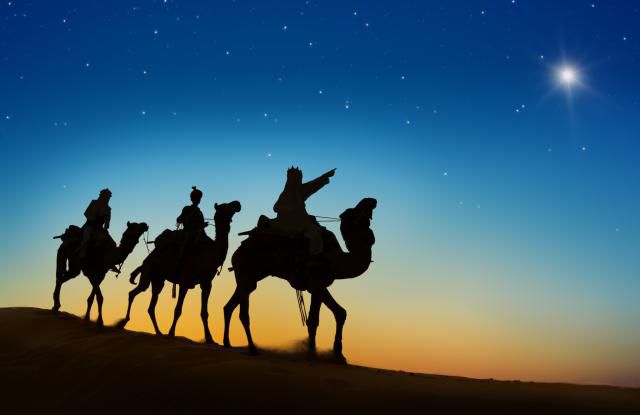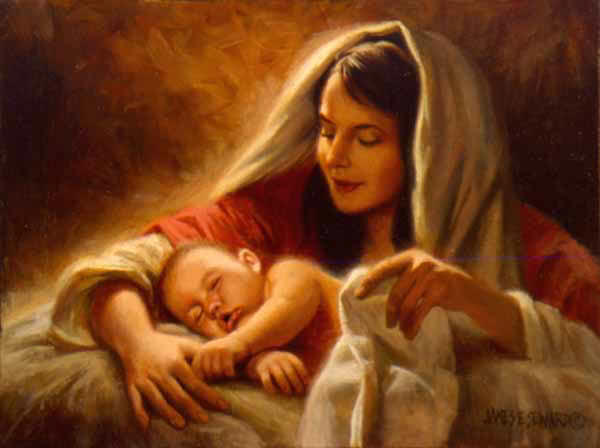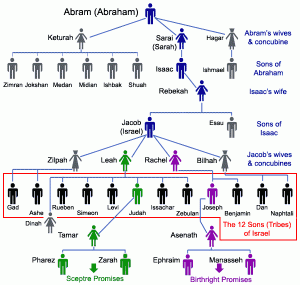Question
Gramps,
If the three wisemen came from the east, how did they follow the star that was in the east? Wouldn’t they need to be traveling west? So the star would have been in the west for them, correct?
Answer
Dear Donna,
This is one of those cases where we simply don’t have enough information to be sure of much, and where the old language used in the King James Version of the Bible may be a little confusing. The only information we have from the Book of Mormon is confirmation that there was in fact a new star (Helaman 14:5 prophecy of a new star, and 3 Nephi 1:21 confirmation the star appeared).
The story of the wise men appears only in the book of Matthew:
1 Now when Jesus was born in Bethlehem of Judæa in the days of Herod the king, behold, there came wise men from the east to Jerusalem,
2 Saying, Where is he that is born King of the Jews? for we have seen his star in the east, and are come to worship him.
9 When they had heard the king, they departed; and, lo, the star, which they saw in the east, went before them, till it came and stood over where the young child was.
10 When they saw the star, they rejoiced with exceeding great joy.
(Fun observation: the text doesn’t tell us how many wise men there were. The assumption that there were three appears to be based on the fact that there were three gifts.)
The story in Matthew clearly tells us that these wise men came from somewhere east of Jerusalem – there’s no ambiguity. But as you’ve noted, this seems to conflict with the idea of the star itself being in the east. However, if you were to go outside at nightfall and watch to the east, you could pick out any star and then (were you patient enough), you could watch as it moved from the east to the west. Therefore, the wise men would indeed have seen the star rising in the east (and they would have seen it setting in the west).
Some translations of the Bible render the critical part of verse 2 as, “For we saw his star when it rose…” (or similar language). The original Greek word used can mean either “the east” or “a rising”. So, the wise men could simply have meant they saw the star rising or even that they saw it appear as a new star in the sky. (Scholars seem to agree that the word translated “wise men” would more accurately be translated “astrologers”, so these would be men familiar with constellations and their movement and patterns, and who would regularly watch the night sky.)
Another possibility is that the wise men weren’t saying the star was in the east, but that they saw it while they were in the east. If this is the intended meaning, then we could rephrase the critical part of verse 2 as “for we in the east have seen his star” or “for we have seen his star from our place in the east”. This is how I have always read it.
Verse 2 is revealing in another way. It indicates that these wise men knew of a prophecy that said a star would appear to signify the birth of King of the Jews. We have no clear Biblical record of such a prophecy, therefore we have no idea how detailed it might have been. Book of Mormon people knew roughly when this would happen (600 years after Lehi left Jerusalem), so it’s not unreasonable to believe that the prophecy these wise men were reading could have been more detailed than what we currently see in the Bible.
After the wise men left Herod, they continued to watch the night sky. We know this because Matthew 2:9 mentions the star. I’ve always taken “which they saw in the east” to mean “which they had seen while in the east”, but after thinking about it more, perhaps it means “which they saw rise in the east”, because the next phrase says that it “went before them” – thus, they were watching it move across the night sky. The account tells us they watched and followed “till it came and stood over where the young child was”. Now that we know the star would have followed an arc from east to west, we have to assume one of two things – something miraculous happened to “pause” that star when it was over Christ, or (more likely), the prophecy the wise men were following told them enough to know when it would be over the Christ child (e.g. when it was at its zenith). This, of course, is pure speculation and only meant as an example of what might have happened.
This has sparked in my own mind the question of why they would go to Herod at all if the prophecy and star were sufficient to guide them. My speculation is that they went to show respect to the king, they likely they assumed Herod would already know of the newborn King and perhaps present them to him, and it may have been simpler to ask than to wait for nightfall. Whatever the case, perhaps in the next life, we’ll get the chance to learn the rest of the story.
I hope this resolves the question for you, Donna, and that all your Christmases to come are filled with joy as you remember the birth of our Savior!
Gramps







